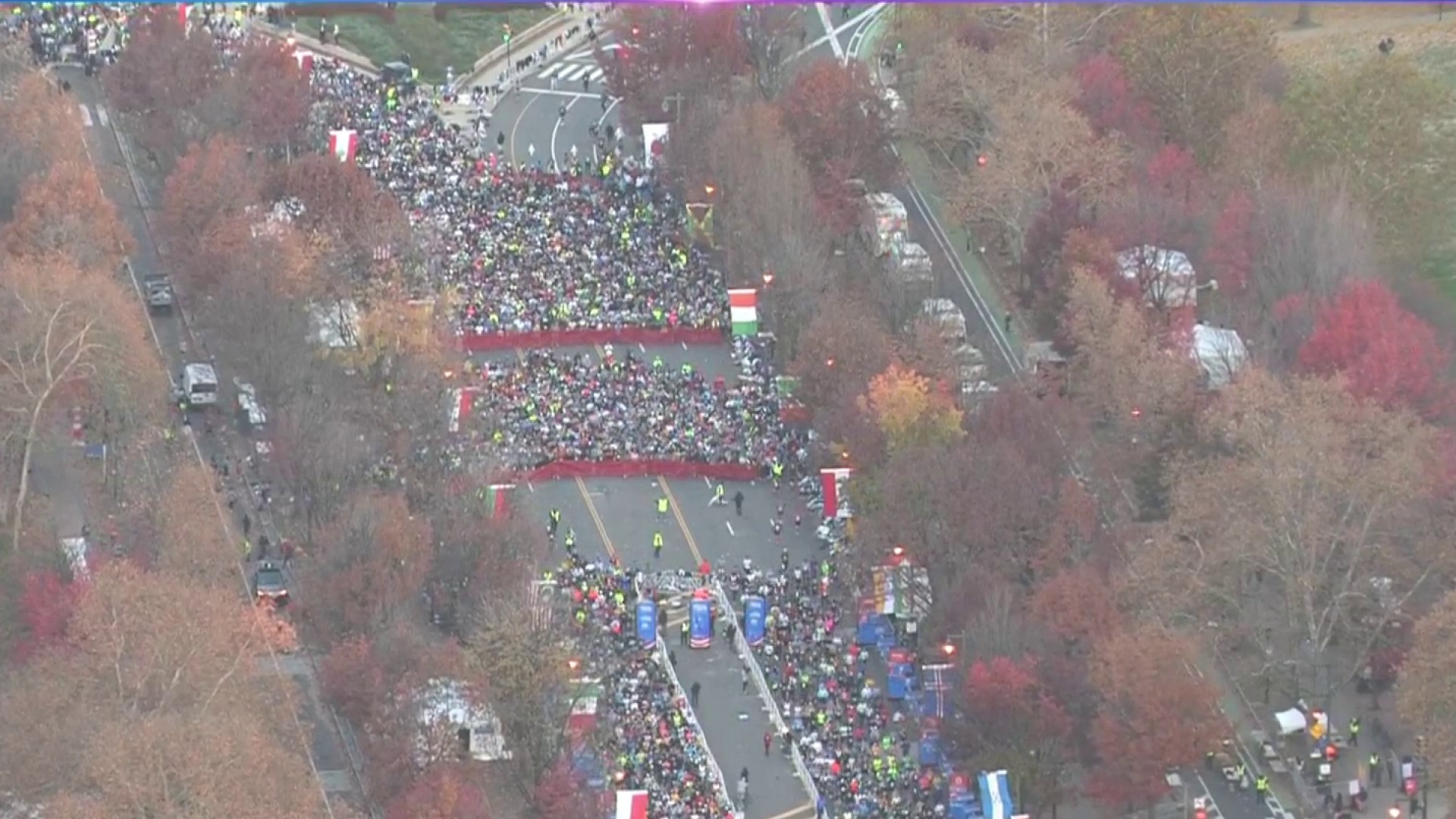NBC10 is one of 19 news organizations producing Broke in Philly, a collaborative reporting project on solutions to poverty and the city’s push towards economic justice. Follow us at @BrokeInPhilly.

They crammed into Philadelphia City Council chambers Thursday afternoon, carrying signs and rallying for a new bill that would guarantee thousands of hourly workers more predictable schedules and stable wages.
“I’m just one of 130,000 Philadelphians experiencing stress in our lives due to our work schedules," former Target employee Madison Nardy said.
The daughter of a single mother, Nardy knows what how it feels to borrow money and miss bill payments because of inconsistent paychecks.
"I was naive to conditions of the service industry," she said.
Nardy hopes that Philadelphia will pass a fair workweek ordinance to regulate hourly workers' schedules, but not everyone is behind the idea.
Local
Breaking news and the stories that matter to your neighborhood.
The bill was first introduced over the summer by Councilwoman Helen Gym and seven co-sponsors. Business associations immediately raised concerns that it would hamper business development and, by extension, curb job growth.
“In the long run, it’s going to hurt the industry,” Ed Grose, executive director of the Greater Philadelphia Hotel Association, said.
On Thursday, Gym introduced several amendments aimed at creating a “strong compromise” that could have broader appeal among lawmakers, business leaders and advocates.
The “concessions” included new exemptions for employers to staff last-minute ticketed events and large banquets and added language allowing employees to voluntarily change their schedules.
Perhaps most significantly, however, language was removed from the original bill prohibiting under-scheduling, or the practice of not scheduling enough hours per employee. Gym removed that provision because she felt the bill as written provided sufficient worker protections, the councilwoman said.
“This is a city council that is dedicated to ending poverty and supporting working families,” she said. “This is a bill that will do that.”
According to 2015 U.S. Census data, at least a quarter of Philadelphia’s service employees work part time. Many of these retail and service industry workers frequently face unpredictable schedules that change as often as the seasons.
This has been the case for hotel housekeeper Earlene Bly, who is a 27-year veteran of the hospitality industry. Throughout her career, the 52-year-old has spent entire weeks waiting to be called in for work. Sometimes she would get notice the day before. Sometimes she would call her employer to make sure she still had a job.
The longest stretch she went without regular work was from the end of November to early March, she said. She received part-time unemployment pay during that period, but it was only half of her regular pay, Bly said.
“I took out loans, cashed in vacation time to pay rent,” she said.
But Grose countered that Bly’s experience is not necessarily the standard. While many hotels do slow down in winter months, the association found that several in Center City offered full benefits and paid a living wage, he said.
Recently, Philadelphia's hotel association asked a Center Center hotel to review its wage information for hourly workers, Grose said. The hotel, which Grose declined to name, found that it paid an average of $44,000 to its hourly employees, including benefits and additional perks like meals.
Grose said that is fairly typical of full-service hotels.
“We feel that we take care of our people,” he said.
To address the kind of insecurity experienced by Bly, fair workweek advocates want employers with more than 250 employees to provide a reasonable notice of schedules, at least 11 hours rest time between shifts, opportunities to work additional hours and provide for enforcement and penalties if an employer does not comply.
Philadelphia's bill would specifically apply to large chain businesses in the retail, food or hospitality sectors with at least 30 locations across the country or state.
Supporters argued that underemployment remains a persistent problem in Philadelphia, which has the highest poverty rate of the nation’s largest cities. A recent report by Hunger Free America found that food insecurity increased in the city by 22 percent from 2015 to 2017. Nearly 80 percent of residents experiencing hunger were working, according to the report.
“This part-time instability is a real cause,” Gym said. “If there is something we can do about it, we should take action.”
Detractors argued that forcing big employers to offer more hours could ultimately hurt job growth in the area. When the bill was first introduced over the summer, Philadelphia’s Chamber of Commerce called the legislation “yet another anti-growth, out-of-sync initiative.”
“Under the guise of improving worker flexibility, this ... legislation hurts the very industries where we are seeing growth — the very industries that have put Philadelphia on national and international business site selection lists and travel and tourism lists,” the Chamber of Commerce said in an emailed statement at the time.
The amendments introduced Thursday have not assuaged these fears.
"We still have concerns," a Chamber of Commerce spokesperson said.
Part of the ongoing problem between city council and business associations is the state minimum wage, which stagnated 12 years ago at $7.25 under former Gov. Ed Rendell. A provision adopted at the time prohibited local municipalities from further making changes to their minimum wages. That power was given to the General Assembly.
As a result, Pennsylvania’s minimum wage has not budged. Meanwhile, New Jersey’s minimum wage increased to $8.44 and Delaware’s to $8.25.
“I consider it a poverty rate,” Gym said. “I can’t let that stop me.”
Philadelphia City Council will vote Dec. 6 on the fair workweek bill.



